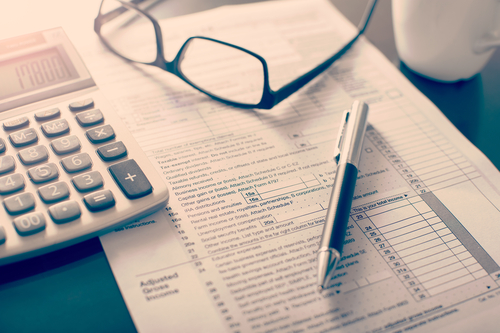By Neil Wright, of Tommy’s Tax

Our tax systems are constructed to be “gender-blind”. But they can still be the product of hidden biases that can hurt women.
The coronavirus pandemic, like other pandemics before it, has helped to shine a light on the gender inequalities that still persist to this day.
The reason behind this is that men and women still largely face different socioeconomic realities. For example, women make up the majority of healthcare workers. And on average, they spend more time rearing children. This can mean that — although men and women are taxed the same — the amount they earn and the way they participate in the labour force can have repercussions that hurt women economically.
Women and tax discrimination before Covid-19
For example, in most countries most “secondary earners” are women. Meaning they are in employment but earn less than their partners. Well it just so happens that in most countries, second-earners face disproportionately high tax burdens when entering the world of work. Due to family-based tax reductions in dependent spouse credits, household income actually increases at a slower rate for every pound earned. This can result in huge discrepancies, such as second earners taking home a sizable 7% less of their gross wages when compared to singletons earning the same amount of income.
Other factors can reduce the incentives for secondary earners to enter (or re-enter) the workforce. Such as the availability of childcare. And seeing as most secondary earners are women, it is women for the most part who face this disincentive. Consumption taxes can make the disincentive even stronger. As consumption taxes on services such as childcare, and cleaning, make it a more attractive option to just do them personally at home — rather than buying such services on the market.
The impact of Covid-19 on women and taxes
Already we’ve seen that women are at a disadvantage. But the destructive forces of Covid-19 have amplified these structural failings.
For example, Covid-19 has increased women’s unpaid work burdens. Especially with the widespread closure, and volatility of schools and childcare facilities (in which even now, with lockdown easing, children must go home and stay home for two weeks if a classmate is symptomatic).
Women have also shouldered the greater burden of shopping, cleaning, and other household chores. And given that most women tend to be secondary earners, the pressure is there for women to give up their jobs to concentrate on the issues at hand.
In addition to these factors, men and women tend to have different patterns of employment. With women three times more likely to be part-time workers. These part-time jobs are often the most vulnerable during times of economic crises, and especially the Covid-19 crisis. In short, it is mainly women who face higher risks of unemployment or income loss, and it is mainly women who do not have safety nets to protect them.
Protecting women and making tax systems fairer
To solve these problems, we need to bring in fair taxation policies to account for all types of employment. In addition to increasing access to benefits for part-time workers who have suffered a loss of income.
To ensure the tax system does not indirectly prop up gender biases, governments need to keep a close eye on how taxes can impact men and women — and make sure that it is a key policy dimension in how they respond to the economic challenges of Covid-19.
To address the complex ways tax and gender interact with one another, governments will need to think carefully about key taxes they already have in place, and redesigning them to avoid making the tax gender divide even worse. Or alternatively, they could use income from taxes on other instruments to help bridge the gap between differences in income levels that are often unfairly slumped on the shoulders of women. These changes all need to be part of a long-term response to the pandemic crisis, and gender inequality as a whole.
Only with these measures, and with a desired commitment to change, can we bring about a tax structure that is truly gender neutral. To quote the Finnish Prime Minister, Sanna Marin, gender equality doesn’t just “happen by itself”.
WeAreTheCity covers the latest female centric news stories from around the world, focusing on women in business, careers and current affairs. You can find all the latest gender news here.
Don’t forget, you can also follow us via our social media channels for the latest up-to-date gender news. Click to follow us on Twitter, Facebook, Instagram, and YouTube.





